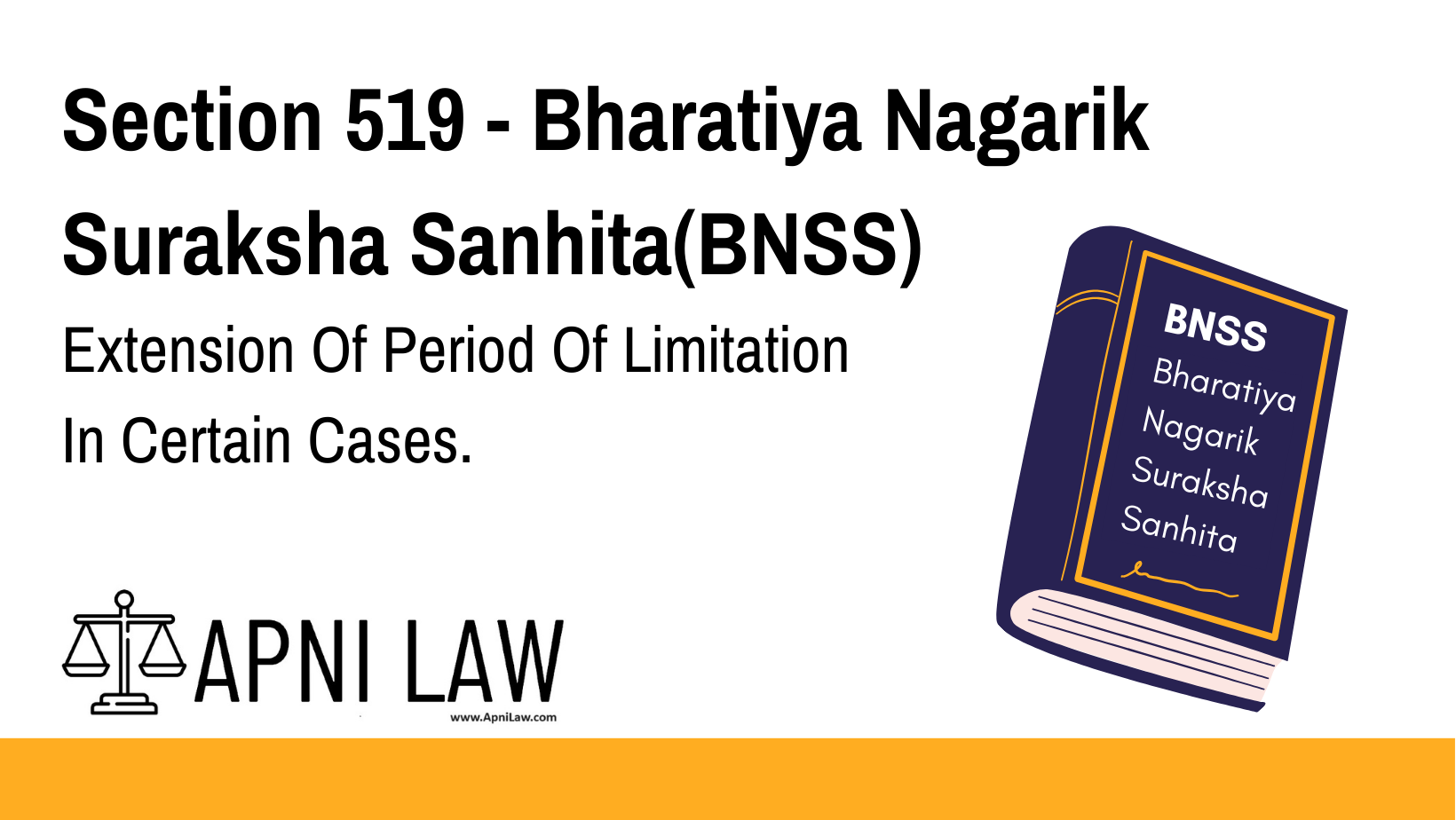Code: Section 519 BNSS
Notwithstanding anything contained in the foregoing provisions of this Chapter,
any Court may take cognizance of an offence after the expiry of the period of limitation, if it
is satisfied on the facts and in the circumstances of the case that the delay has been
properly explained or that it is necessary so to do in the interests of justice.
Explanation of Section 519 BNSS
Section 519 of the Bharatiya Nagarik Suraksha Sanhita (BNSS) deals with the extension of the period of limitation for taking cognizance of a criminal offence. Normally, criminal cases must be filed within a specific period, known as the period of limitation. However, in exceptional cases, Section 519 BNSS allows the Court to take cognizance of an offence even after this period has expired.
Key Provisions of Section 519 BNSS:
- Discretion of the Court: This section gives the Court discretion to take cognizance of an offence after the period of limitation has expired, if it believes that the delay in filing the case has been properly explained or that it is necessary for justice to be served.
- Proper Explanation of Delay: If there is a reasonable and valid explanation for the delay, the Court may decide to proceed with the case, even if it is beyond the standard limitation period.
- Interest of Justice: The Court may also extend the period if it finds that allowing the case to proceed is essential for the interests of justice. This provision ensures that fairness is prioritized, and justice is not obstructed by strict adherence to procedural timelines.
Illustration of Section 519 BNSS in Practice
Example 1: Delay in Filing Due to Unforeseen Circumstances
A person has been accused of fraud, but the complaint is filed beyond the statutory limitation period. The Court reviews the case and determines that the delay was due to unforeseen circumstances such as the victim’s inability to access necessary documents. In this case, the Court may take cognizance of the offence and proceed with the trial, based on the explanation of the delay.
Example 2: The Need for Justice in Exceptional Cases
A person is accused of a serious criminal offence, but the complaint is filed after the usual limitation period has passed. After reviewing the facts, the Court finds that the delay is due to the victim’s fear of retaliation and believes that it is in the interest of justice to hear the case despite the delay. The Court may allow the case to proceed under Section 519 BNSS.
Common Questions and Answers About Section 519 BNSS
1. Can a Court take cognizance of a case after the limitation period has expired?
- Answer: Yes. Under Section 519 BNSS, a Court may take cognizance of an offence even after the period of limitation has expired if the delay is properly explained or if it is necessary in the interests of justice.
2. What must the Court consider before extending the limitation period?
- Answer: The Court must be satisfied with the explanation for the delay and assess whether it is in the interests of justice to allow the case to proceed beyond the limitation period.
3. Does this section apply to all criminal offences?
- Answer: Section 519 BNSS applies to criminal offences that are subject to a limitation period. However, the Court has the discretion to extend the period based on the circumstances of the case.
Conclusion
Section 519 BNSS ensures that justice is not denied due to procedural delays, offering the Court the flexibility to extend the period of limitation when necessary. This provision allows for fairness and ensures that cases of serious nature, or those where the delay is justified, are not automatically dismissed because of timing issues.










